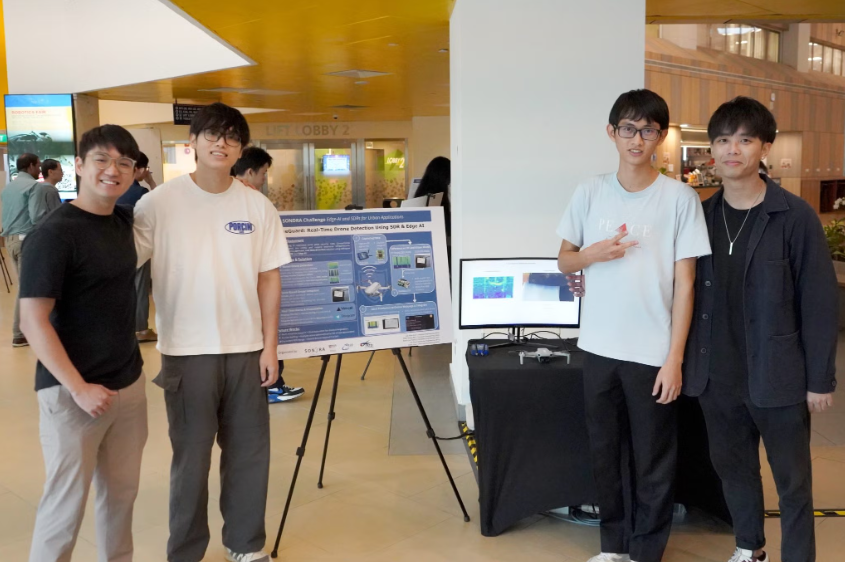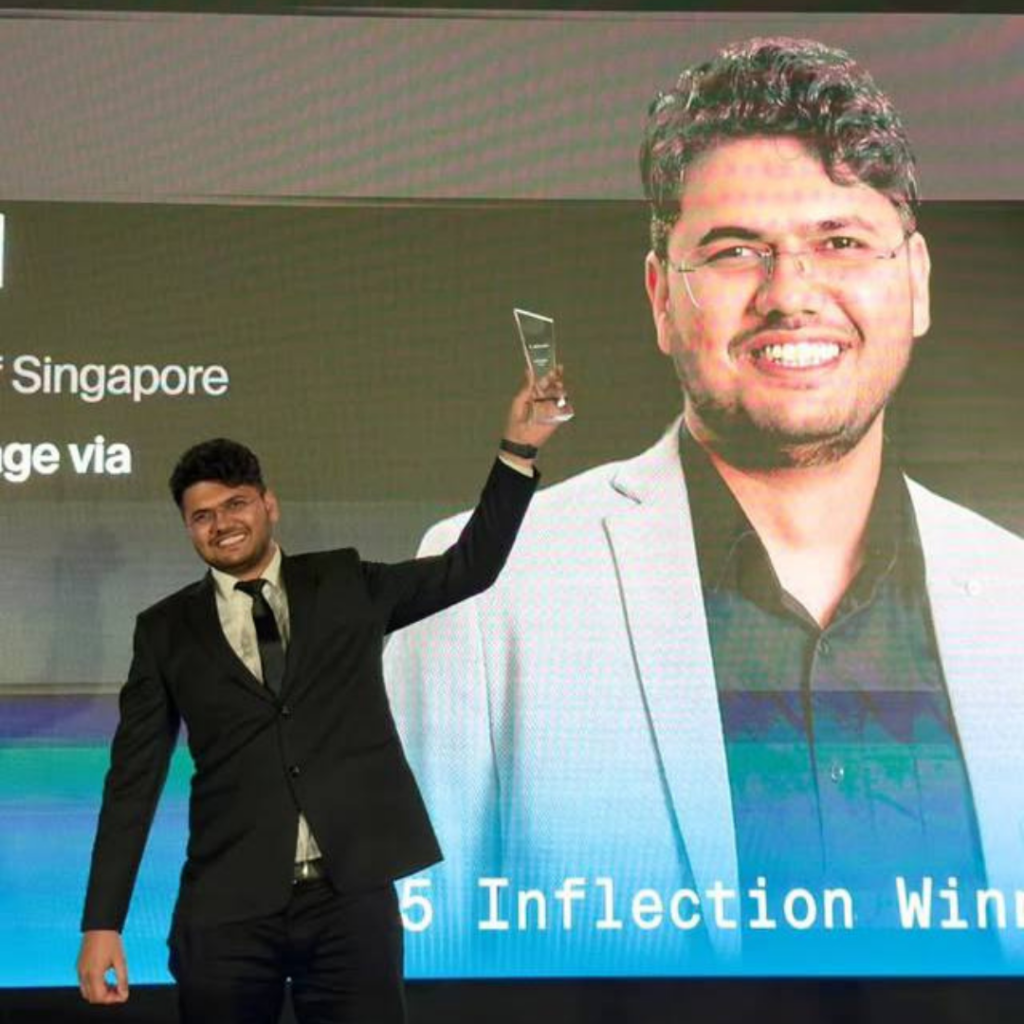
A team consisting of Computer Engineering students (Lee Xian Hui and Chan Sheng Bin), Chemical Engineering student (Jonas Low), alongside members from SIT and NTU, won 1st place in the SONDRA Challenge 2025 with their project, DroneGuard—a real-time drone detection system using Software-Defined Radio (SDR) and Edge AI.
The team’s winning project, DroneGuard, presents a cutting-edge, real-time drone detection system that combines RF-based machine learning detection and computer vision to identify unauthorised drones in restricted areas. By leveraging SDR to analyse drone radio signals using a CNN model and using a YOLOv8 model for live video detection, DroneGuard offers a low-cost, scalable, and highly accurate solution for drone surveillance. Their system, powered by a Hailo AI accelerator and Raspberry Pi 5, achieves more than 95% accuracy and provides real-time alerts via a web dashboard and Telegram notifications. This innovative approach to autonomous drone detection highlights the potential of AI-driven security solutions in urban environments.
The winning team will earn themselves a one-week sponsored trip to attend the 6th SONDRA’s workshop in La Grande Motte, France, where they will have the opportunity to network with academics, researchers, engineers and PhD students from French and European research institutes.


